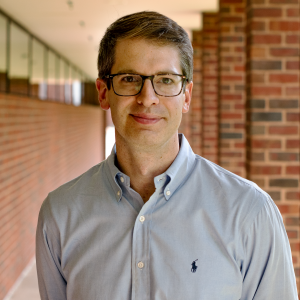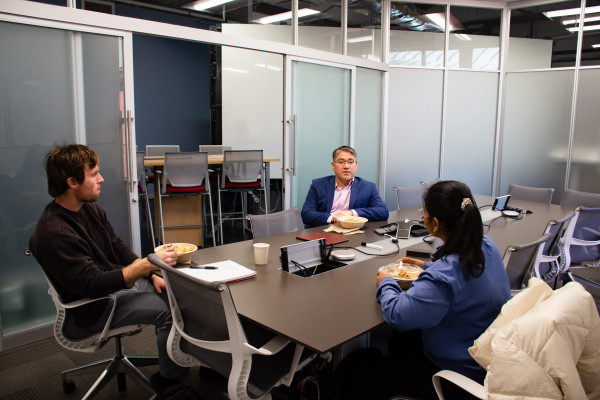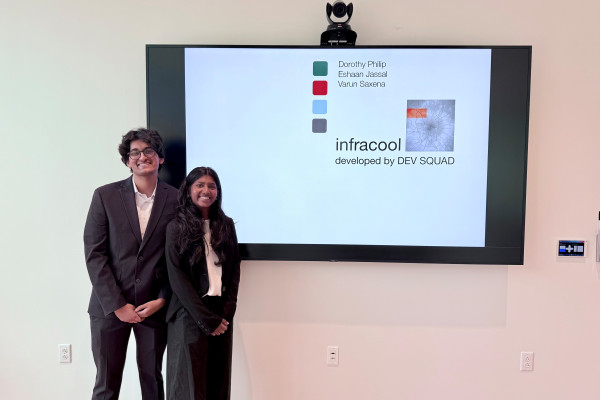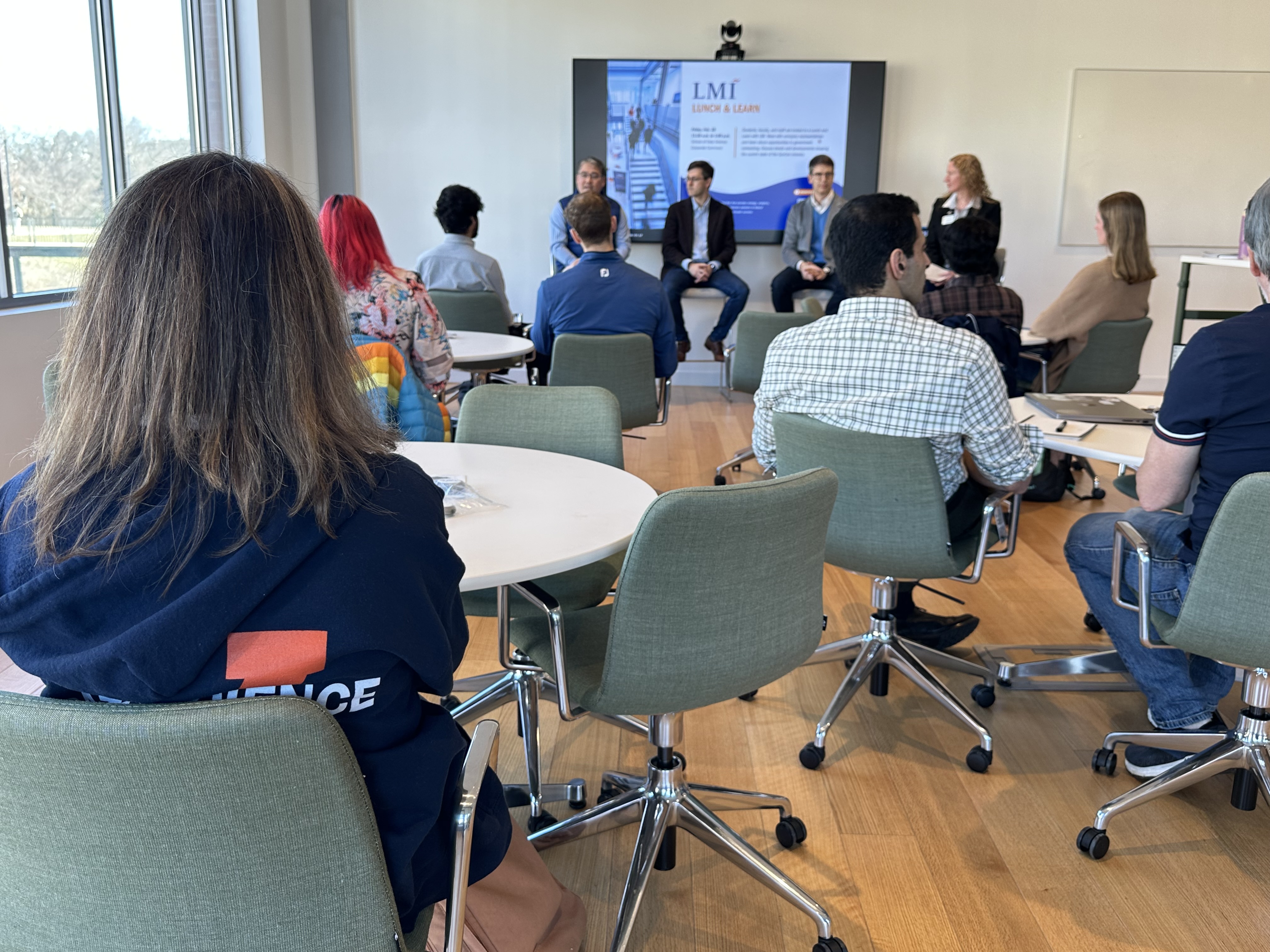
LMI Continues to Strengthen Partnership with the School of Data Science
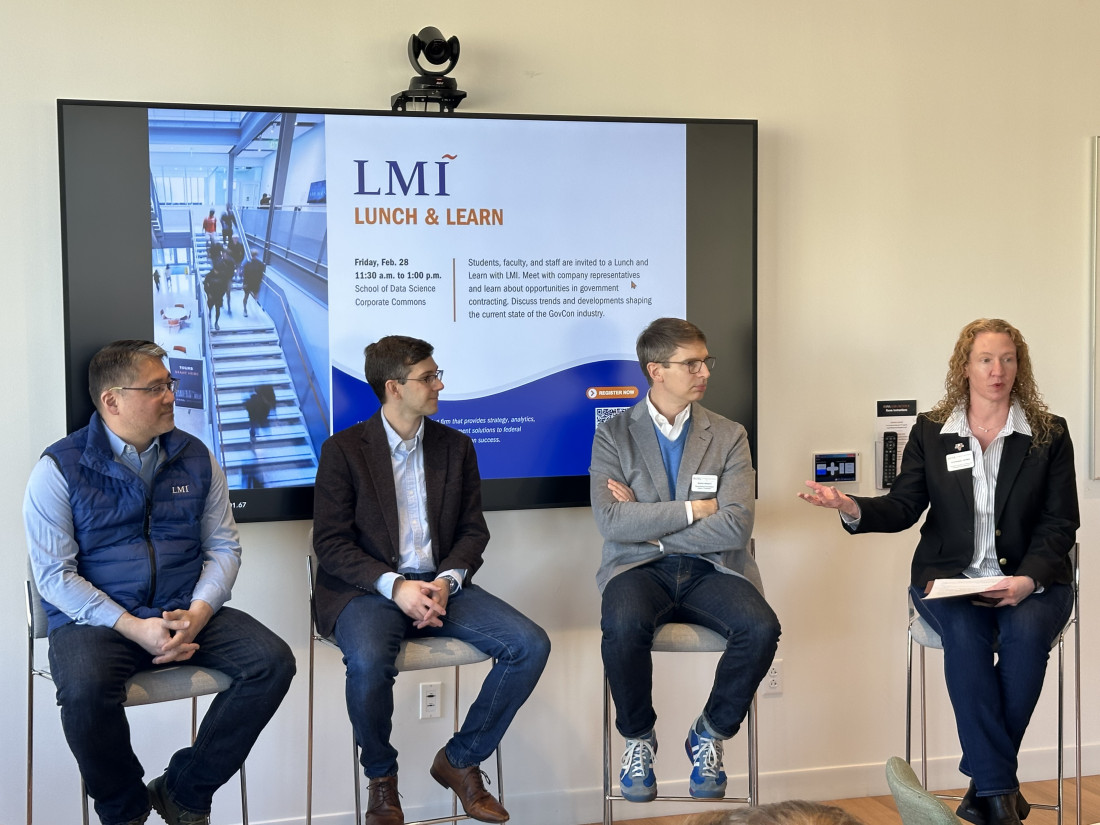
Virginia-based management consulting firm LMI has continued to build on its working relationship with the University of Virginia School of Data Science, as evidenced by several events during the 2024-25 academic year including an "LMI Day" in the spring semester.
The School of Data Science and LMI have collaborated since the School's inception, inclusive of professional events and even working directly with data science students. In partnership with the School, LMI has hosted an annual Data Entrepreneurship Challenge for students competing to combine data-driven creativity with a commitment to social impact. And once again this year, LMI served as one of the sponsors in the M.S. in Data Science capstone program.
In late February, LMI brought alumni, hiring managers, and executives to spend the day with students. "LMI Day" featured a fireside chat with company leaders and a panel for talent engagement and career insights that included information about Department of Defense contracting and a chance to hear from MSDS alumni who now work for the firm. The event had a mix of undergraduate and graduate students as well as faculty and staff in attendance.
Reggie Leonard, associate director for career connections and community engagement, explained the inspiration for the event. "LMI has had a longstanding relationship with the School of Data Science, and has formalized that relationship by being a part of our Data Science Industry Partners Program," he said. "In an effort to extend this partnership further, LMI expressed interest in hosting a day with us where they could interact with students, faculty, and staff."
The event began with a fireside chat featuring LMI executives Alex Adamczyk, vice president of advanced analytics and AI, and Brant Horio, vice president of applied research and partnerships, in conversation with Quantitative Foundation Associate Professor of Data Science and BSDS Program Director Brian Wright.

The chat was moderated by Stephanie Joynes, assistant director of career and professional development, who began by asking the LMI panelists about their work with government contracting.
Horio noted that government contracting is a field that always has a degree of uncertainty. Administration changes, shifting budgets, and technological advancements all can lead to rapid change. Adamcyzk said that, as it relates to the data science community specifically, it appears that the government is more and more willing to use AI as a solution.
Joynes then asked the panel what skills students should focus on for a career in technological contracting, specifying how students might anticipate the needs of the workforce in the next few years.
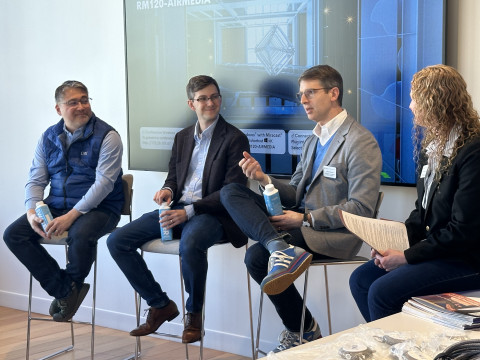
Wright said that the school is always adjusting academically to the dynamic changes of the professional working environment. The School prioritizes a strong foundation of technical skills while focusing on adaptation and helpful partnerships.
Adamcyzk explained that a recent shift in industry norms will also affect necessary skill sets.
He said that, previously, the government opted to buy custom bespoke solutions, enlisting data scientists to create models for specific problems. This process led to the government taking on all the risk, so the industry has been shifting to a preference for buying commercial software and then tweaking it accordingly, in lieu of creating software from scratch.
"They're realizing they can't buy like that anymore," Adamcyzk said. "Before they can write down what they want, the technology changes." This shift to a software product market is cheaper for both ends of the equation, he said.
Therefore, for students, cybersecurity experience is becoming critical for government work. This, and the ability to work collaboratively with others, is the key to a career in government contracting. "You need to understand enough about other technologies to be able to integrate within other teams, and that is what the government wants," Adamcyzk said.
Horio agreed, emphasizing passion and communication as necessary for a data science career. "The most successful people are those who are able to think about the systems of implications and the robustness of their ideas," he said. Horio suggested students find a passion project to practice these skills. He proposed finding an interesting data set and "just messing with it" or comparing the functionality of different large language models, for example.
The panel "Talent Engagement & Career Insights" followed the fireside chat's industry insights and advice. Panelists included an LMI hiring manager leading a conversation with MSDS alumni Nadir Siddiqui and Josh Gen.
Siddiqui and Gen worked with LMI for their master's capstone project. They collaborated with sponsor Adamcyzk while still in the MSDS program to create a prototype model for identifying supply chain risk alternatives. LMI eventually incorporated the model, and Siddiqui and Gen said they were invited on as authors to continue building it out. Adamcyzk interjected, stating, "It went from a UVA capstone to $50 million in sales in 30 months."
Siddiqui and Gen are examples of the potential for student projects to have real-world impact. They further discussed the work they do, the importance of deploying innovative solutions, and the role of LMI in supporting these efforts.
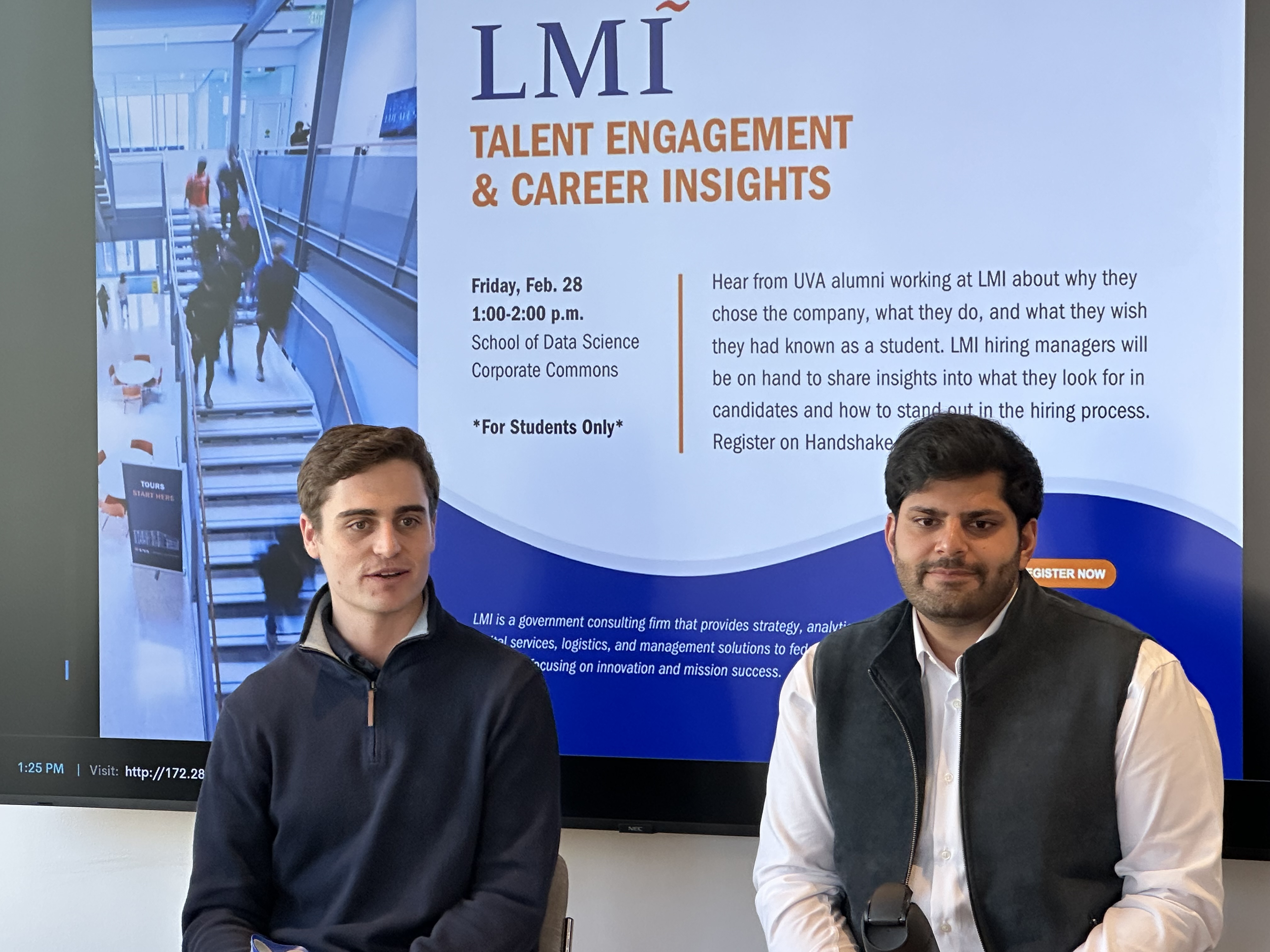
Following the event, Joynes remarked that LMI Day provided insights for a range of students. "Our younger BSDS students were excited to learn about the field of consulting as part of their career exploration, and MSDS students were eager to learn about the skills hiring managers are seeking as well as the short- and long-term stability of working with a smaller, more agile consulting firm," she said.
Joynes also noted the biggest takeaway from the event: "The most important quality data scientists can bring to the workplace is the ability to translate highly technical information into actionable common speak for executives who are not living in the world of data," she said. "Being able to work collaboratively, communicate effectively, and continuously learn new skills can make new data professionals unstoppable."
